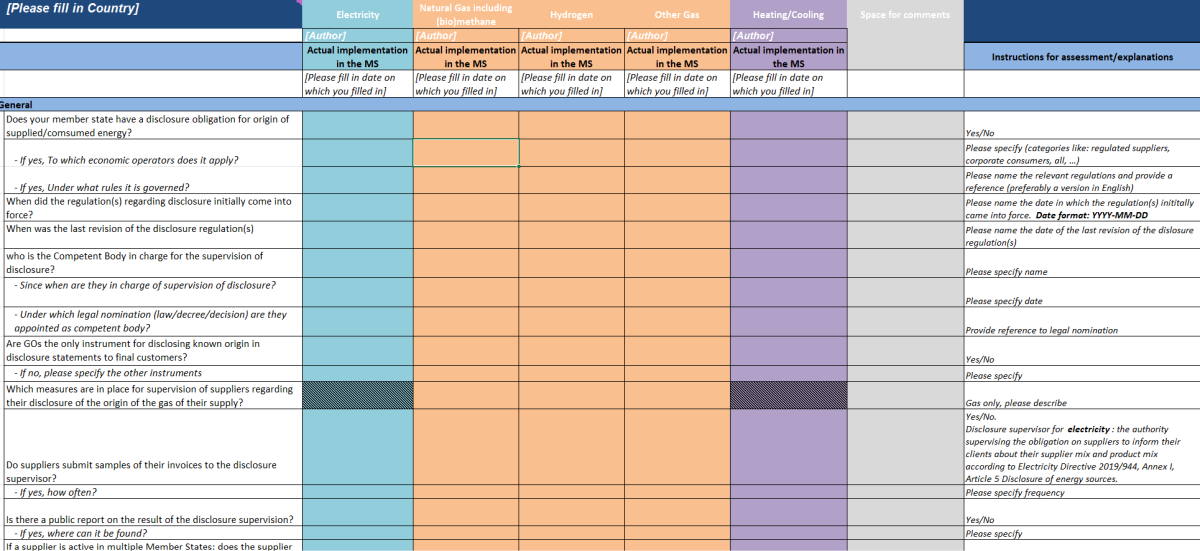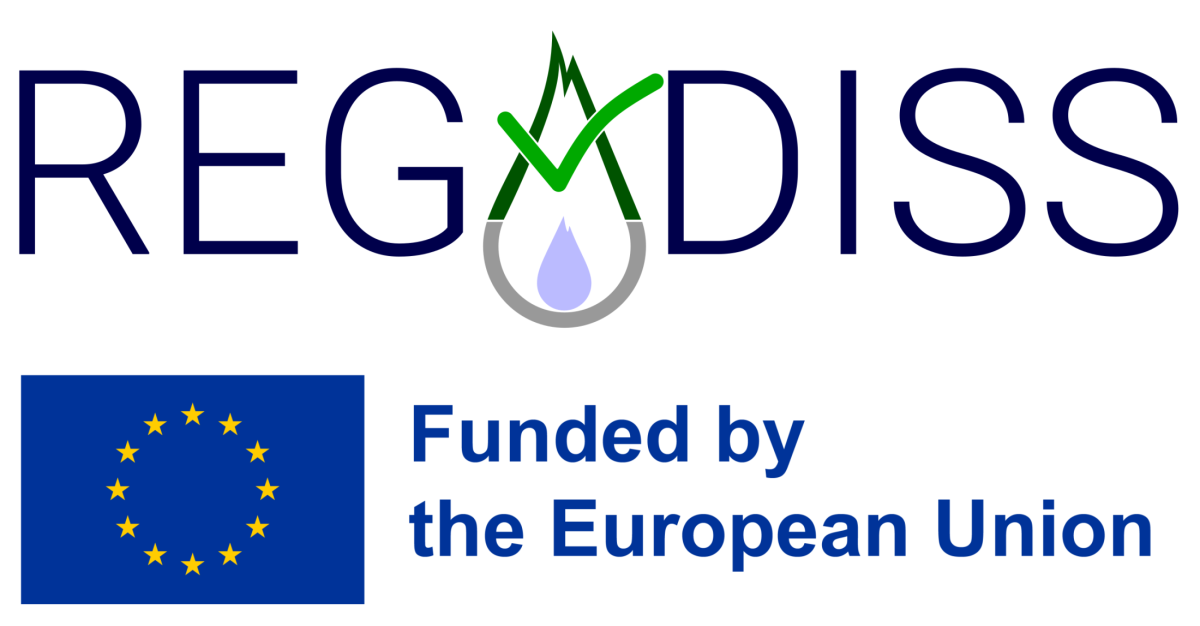REGADISS
ReGaDISS -Reliable Gas Disclosure System is a one-year project under a service contract to DG Ener of the European Commission, based on the terms of reference N° ENER/2023/MVP/0010. The goal is to provide Technical assistance to develop methodologies compliant with disclosure obligations on gases from renewable energy sources.
The project will develop basics for a methodology for a residual mix for gases, in line with the gas disclosure obligation following art. 19.8 of the RED3 and the upcoming revision of the Gas Directive.
Project Leader: Katrien Verwimp
Start: January 2024.
Draft Residual Mix Calculation Methodology, Consultation and Workshop
The REGADISS Task 3 report "Draft Methodology for Disclosure Supervision and Residual Mix Calculation for Gases" has been published (see link).
This draft methodology is subject to an open stakeholder consultation, which is open from July 11th until September 15th, 2024. The consultation process is explained in a Consultation Brief. Responses may be entered through Microsoft Forms, using this link.
We invite you to the Stakeholder Workshop on September 3rd. This workshop will present the draft methodology and aims to maximize the impact of the consultation process. The workshop is free of charge, but registration is required. All information and registration details may be found on the workshop webpage.
REGADISS Task Structure
REGADISS consists of 5 tasks:
Task 1: Analysis of the current legal framework and methodologies (EU wide overview of the currently used approaches for Residual Mix)
Task 2: Technical and legal requirements that a methodology for Residual Mix in gases shall comply with
Task 3: Draft methodology for disclosure supervision and Residual Mix calculation for gases
Task 4: Stakeholder consultation and Dissemination
Task 5: Final version of the methodology
New datasheet GO & disclosure template
The national datasheets on GO & disclosure stem from the country profiles, set up during the RE-DISS project. These datasheets provide a comprehensive overview of the systems for GOs and disclosure in different countries, and allow for easy comparison. After the finalization of RE-DISS, AIB took over the national datasheets and integrated them in the periodic member reviews. This is an effort to keep an actual overview of the different national GO systems, and how countries handle disclosure.
With the addition of GOs for other energy carriers, the datasheet template was in need of an update. Until recently, only electricity GOs and disclosure were considered. Within REGADISS, the template was upgraded to a large extent:
- Columns for (bio)methane, hydrogen, other gases and heating & cooling were added, and
- Questions were added to better grasp how different countries handle e.g., granular GOs, power purchase agreements, interaction between GOs and the European Union Database for Biofuels,...
Issuing Bodies and Disclosure Competent Bodies were first asked to comment on the proposed template, and subsequently to fill in the revised template. The results may be consulted on our webpage for National Datasheets on GOs and Disclosure. Please look for the country profiles that were updated in 2024.
The new template developed as part of REGADISS can be downloaded using the download button below.



